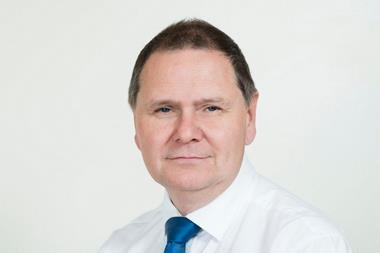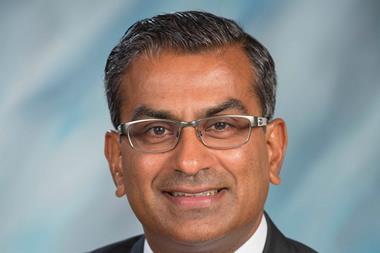UNARGUABLY Cargolux has built the kind of reputation that attracts envy and admiration in equal measure. Today, the word ‘trailblazer’ is overused and in some quarters considered passé, but since its inception, the European all-cargo carrier has always strived to go beyond just augmenting its revenue and profits, writes Thelma Etim, deputy editor.
It has also made its mark as an air cargo innovator and pathfinder – and in doing so achieved not only widespread respect, but also a loyal following far beyond its employees.
Maybe that is why a significant number of people working within the worldwide air cargo industry (including competitors) are empathic, rather than gleeful, about its current predicament. “Cargolux is a great company, it has a great culture and very good people,” enthuses one.
“Other airlines have expressed the view that what is currently happening in Luxembourg is disappointing, because the airline is generally well liked and the market still needs and wants Cargolux, even though its future is obviously less predictable,” he adds.
The current and recent challenging market conditions – with global overcapacity caused by increasing numbers of voluminous passenger aircraft bellies and not enough market growth in volumes – only amplifies the need for the specialist cargo carrier to resolve its internal problems sooner rather than later.
Cargolux, which currently operates a fleet of nine B747-400Fs, two B747-400BCFs and nine B747-8Fs, is a very highly leveraged company. “In the last two years they have been growing [their fleet] much stronger than the industry average and stronger even than the Middle East carriers,” notes one source. “The Middle East carriers have certain risk mitigation, because they have very deep pockets and so they will be able to ride out a storm. But what nobody understands is why Cargolux is taking this huge amount of risk?”
Other sources argue that the real issue is the fact that the cargo carrier is operating on an unchanged, unviable cost base, which urgently needs to be reduced.
Hindsight may be a wonderful thing, especially in the reactive rather than proactive air cargo business, and some would argue now that the portents were there long before Qatar Airways decided to pull out of a proposed acquisition of Cargolux last year.
One source says that plans by Qatar Airways to tackle Cargolux’s extremely high cost base by changing the existing working conditions and by addressing the high remuneration costs would have been strongly resisted. Any attempt to tackle this situation would not have been welcomed by the Luxembourg unions either, it is thought.
“Qatar realised it would never be able to make these necessary changes to bring the company back into profit, so it pulled out,” one air cargo industry stalwart ventures.
On top of this, has come the significant drift of long-serving Cargolux executives in recent times. Qatar Airways has just hired Matthew Ma, Cargolux’s former head of Asia, and Ian Morgan, the cargo airline’s former head of the Americas has also joined the Doha airline.
The now departed Robert van de Weg was a key weapon in Cargolux’s management arsenal. “A very strong driver, talented, charismatic, hands-on, well-liked and respected by the customers, so his untimely departure to B747-8F rival AirBridgeCargo Airlines will ‘hurt’ the company,” insists one source.
Others say the board is now mindful of the fact that in having no ‘number two’ to slot in, the company was exposed because it had become too reliant on van de Weg. But it will not make that mistake again. Although the newly-appointed former K + N executive Dirk Reich will assume his new responsibilities in due course, plans are afoot to break-up what was van de Weg’s extensive individual portfolio and instead, divide the role into three separate and distinct sections: sales, marketing and, significantly, network optimisation. Some spectators suggest this move might be a big mistake since van de Weg’s inclusive role was pivotal to Cargolux’s success and was also one of its great strengths, because it allowed the airline to react quickly to sudden market and capacity changes.
Observers also point out that anyone tasked with optimising the network will first have to get the approval of former AirBridgeCargo manager Robert Song for any changes to the company’s Asian operations, following his appointment by Cargolux as senior vice-president for that region.
Sources close to Cargolux say Reich will have his work cut out – because individual board members seem to hold a range of polarised and conflicting interests. It is also the view that the new Chinese shareholders may use its position as a tool to focus on developing the value of the Henan-based Zhengzhou Xinzheng International Airport, whereas the main objective for the other stakeholders is in maximising the value of the Cargolux shareholding.
To reduce costs, the new chief executive may need to renegotiate the collective agreement with the workforce. The Luxembourg government is unlikely to accept such a move.
And, if that were not enough for Reich to contend with, the European Commission [EC] is currently examining a number of foreign (non-EU) investments in European airlines, including Cargolux’s deal with HNCA. The Commission is probing whether that agreement complies with EC rules on ownership and control of European airlines. According to EU law: ‘A condition to obtain and maintain an operating licence in the EU is that a member state and/or nationals of the member states own more than 50 per cent of the airline and effectively control it. An EU operating licence gives a carrier access to the intra-community aviation market.’
In addition, it is felt that the hiring of a trail of expensive business consultants – not from this industry, and “who just questioned everything” – was not a good move, because it gave the impression to the management that their judgment was not trusted.
In the midst of all this dilemma are the highly educated and trained Cargolux employees, some of whom are now demotivated, especially because they have been learning about company developments mainly in the media, rather than directly from their employer. Another source observes: “The employees don’t get told about strategy, or about appointments.”
Air Cargo News showed this article to Cargolux prior to it being published. In a written response, a spokesperson says: “The Cargolux management has routinely held a series of regular staff meetings, talking in detail about what was going down and answering questions from staff. In addition, management, including interim CEO Mr Forson, have circulated memos about those issues.”
Thus far, the company’s damage-limitation approach of keeping a dignified silence regarding communicating with the media has had the reverse effect. Cargolux needs to regain not only the trust of its employees, but its customers and the media as well, because there has been so much bad – and apocryphal – news that has been written about Cargolux.
So what of the future? The common view is that as long as there is support for the new chief executive and he instills confidence in his team, then the historic air cargo carrier may be able to recover in an already difficult market.
Last year, Cargolux flew a record number of block hours and carried record tonnages. It also recorded an all-time high average daily utilisation of its B747-400F fleet in the first week of April.
Long may it continue.










